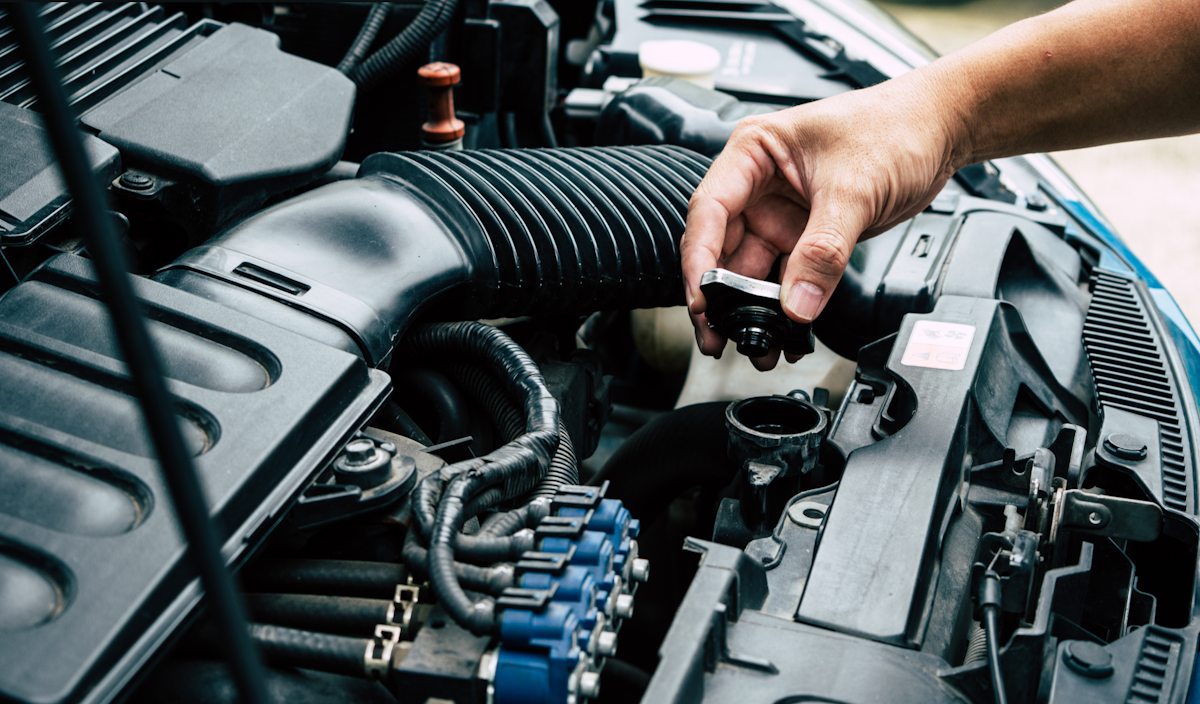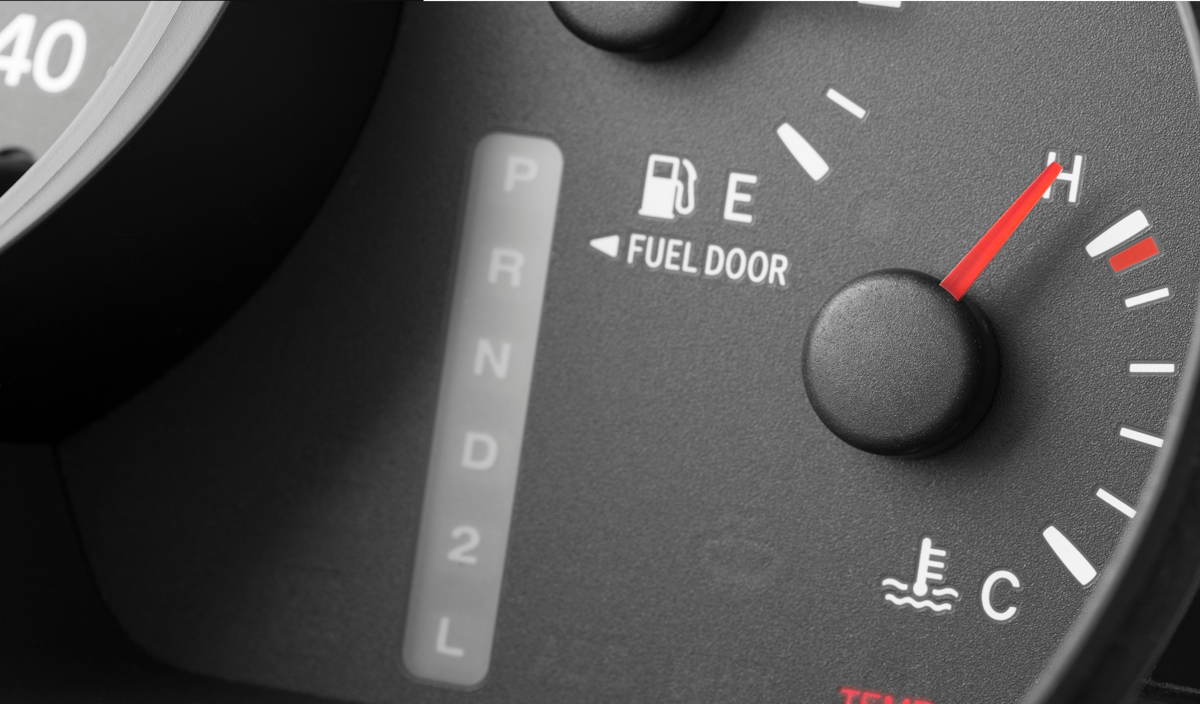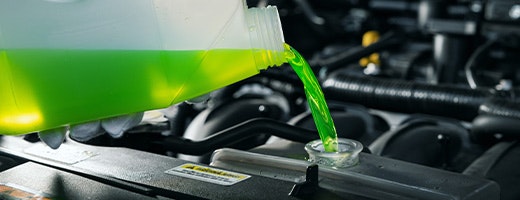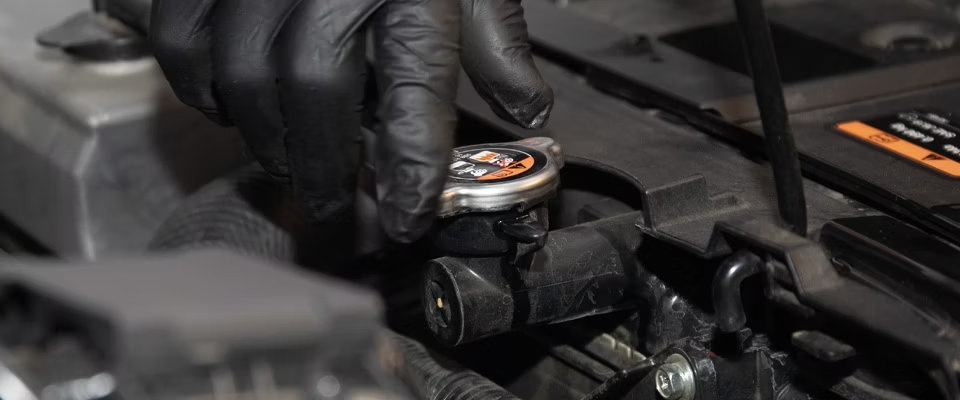
Pakenham Car Service, Diagnostics & Repairs
For friendly service from a trusted independent local mechanic in Pakenham you can rely on the team at Andrews Autos
Read moreYour car’s radiator and cooling system are vital for maintaining engine performance and preventing costly damage. Whether you’re dealing with overheating, leaks, or a coolant issue, it’s important to act quickly to protect your vehicle. At Andrews Autos in Pakenham, we specialise in diagnosing and repairing radiator and cooling system problems, ensuring your car runs smoothly. In this FAQ, we’ll answer common questions about radiator issues and share tips to keep your car in top condition.

A failing radiator can lead to serious engine problems if left unaddressed. Common signs include:
- Overheating: If your engine’s temperature gauge consistently runs high or you notice steam coming from under the bonnet, it could indicate a radiator issue.
- Coolant Leaks: Look for puddles of green, orange, or yellow fluid under your vehicle, as this may be leaking coolant.
- Low Coolant Levels: If your coolant reservoir is consistently low despite regular refills, there may be a leak in the radiator or another part of the cooling system.
- Corrosion or Damage: Visible corrosion, rust, or physical damage to the radiator are signs it may not be functioning properly.
If you notice any of these symptoms, it’s best to have your radiator inspected by the experts at Andrews Autos to avoid further complications.
Your car’s cooling system plays a crucial role in regulating engine temperature and preventing overheating. Here’s how it works:
1. Coolant Circulation: Coolant, a mixture of water and antifreeze, circulates through the engine, absorbing heat.
2. Heat Dissipation: The coolant flows through the radiator, where the heat is released into the air as it passes through the radiator’s fins.
3. Temperature Regulation: A thermostat monitors the engine’s temperature and controls the flow of coolant to maintain optimal operating conditions.
If any part of the system fails, such as the radiator, water pump, or thermostat, your engine could overheat. Andrews Autos has the expertise to diagnose and repair any cooling system issues, ensuring your car stays in peak condition.
There are several reasons why your car might overheat, including:
- Low Coolant Levels: Insufficient coolant can prevent heat from being properly transferred away from the engine.
- Faulty Radiator: A damaged or clogged radiator can disrupt the cooling process.
- Broken Thermostat: If the thermostat fails to open or close correctly, coolant flow may be restricted.
- Malfunctioning Water Pump: The water pump is essential for circulating coolant. If it breaks, the entire system can fail.
- Leaks or Blockages: Cracked hoses, corroded parts, or blockages in the system can also cause overheating.
If your car is overheating, it’s essential to address the problem immediately. Visit Andrews Autos in Pakenham for professional diagnosis and repairs to prevent further damage.

A radiator leak can be a common cause of cooling system issues. To check for leaks:
1. Inspect for Puddles: Look for coolant pooling under your car. It’s typically green, orange, or yellow in colour.
2. Examine the Radiator and Hoses: Check for visible cracks, rust, or damage to the radiator and its hoses.
3. Check the Coolant Reservoir: If the coolant level is consistently low, it may indicate a leak.
4. Pressure Test: A professional pressure test can help locate leaks that are not easily visible.
If you suspect a radiator leak, bring your car to Andrews Autos. Our technicians have the tools and expertise to identify and resolve leaks quickly and effectively.
Regular coolant maintenance is key to keeping your cooling system in good shape. As a general rule:
- Coolant should be flushed and replaced every two to five years, depending on your vehicle’s make and model.
- Always refer to your car’s manual for the manufacturer’s specific recommendations.
Neglecting to replace old coolant can lead to corrosion, blockages, and reduced cooling efficiency. Andrews Autos in Pakenham can handle coolant flushes and replacements, ensuring your cooling system stays in excellent condition.

Prevention is always better than cure. Here are some tips to help avoid cooling system problems:
- Check Coolant Levels Regularly: Ensure the coolant reservoir is at the correct level.
- Inspect for Leaks: Regularly check for puddles or drips under your car.
- Schedule Timely Coolant Flushes: Replace old coolant according to your vehicle’s maintenance schedule.
- Monitor the Temperature Gauge: If the engine starts running hot, don’t ignore it.
- Inspect the Radiator and Hoses: Check for signs of corrosion or wear and tear.
By staying on top of these preventative measures, you can minimise the risk of cooling system problems.
Your car’s radiator and cooling system are essential for preventing overheating and ensuring your engine performs at its best. By recognising the signs of potential issues, maintaining proper coolant levels, and addressing problems promptly, you can avoid costly repairs and breakdowns.
For expert diagnosis and repairs, look no further than Andrews Autos in Pakenham. Our team is here to help you with all your radiator and cooling system needs. Visit us today to keep your car in peak condition.


For friendly service from a trusted independent local mechanic in Pakenham you can rely on the team at Andrews Autos
Read more
Andrews Autos, your new car dealership alternative, can perform fully qualified log book servicing on a wide range of makes and models right here in Pakenham.
Read more